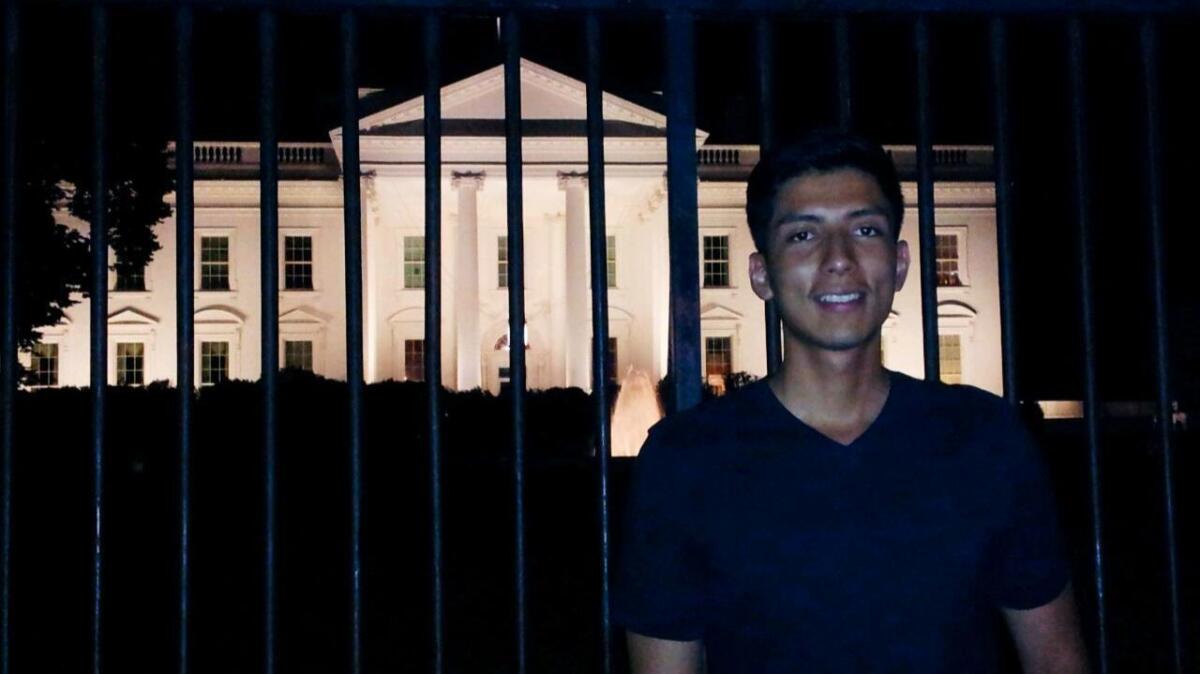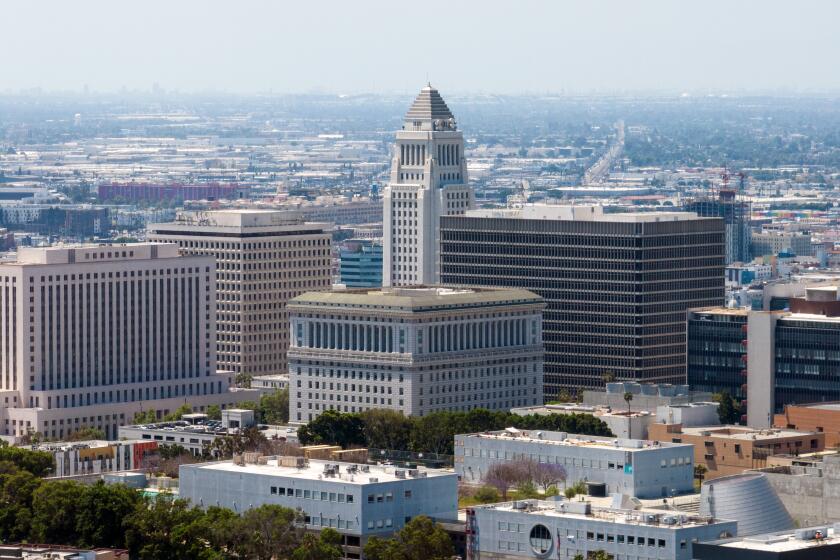Perspective: I was 9 when my parents told me I was undocumented. With DACA ending, I have no idea what’s next
My parents don’t remember exactly when they told me. But I do.
I was 8 or 9 years old. My teacher gave me a pamphlet about a school trip to Washington, D.C.
At dinner that night in my family’s Mid-City apartment, I told my parents I really wanted to go and experience my nation’s capital. At first, my mother danced around the request, focusing on how much it would cost. But eventually, she grew more serious.
“No tienes un ID para viajar, mijo.”
“You don’t have an ID to travel, son.”
I knew something was off, but I wasn’t exactly sure what.
I considered myself American, just like any other kid in my class. I learned U.S. history, bopped along to Snoop Dogg — and, of course, adored a Happy Meal. My parents had often told me I was born in Veracruz, Mexico. But until that night, I’d never given much thought to what that meant.
Knowing that I was in this country without permission from the government changed the way I lived my life — but I have tried not to let it limit me. At times, it has made me cautious and reserved; at other times, brave and ambitious. It’s a basic fact, a part of who I am.
The last few years have been marked by highs and lows — when President Obama gave me and other “Dreamers” work permits, when
My dad left Mexico first, heading north in hopes of providing a better life for my family. Months later, when I was 2, my mom and I followed. We were reunited around Christmas in 1992.
That night almost 20 years ago when I brought up the class trip, my parents were forced to have the talk with me — the “no tienes papeles” talk.
They told me to stay away from trouble, always obey authorities, be extra careful around police and officials. I wouldn’t be able to get a driver’s license, might not get a job after high school, couldn’t go visit Mexico, couldn’t take that school trip.
“Échale ganas en la escuela y Dios proveerá,” my mother said.
“Work hard in school and God will provide.”
That was my takeaway from the conversation. And I ran with it.

In 2012, I graduated from Cal State Northridge.
Using my Mexican passport, I got on a plane and headed at long last to Washington.
I was there for a journalism fellowship program, reporting on national politics that affected Latinos.
One morning that June, I woke up to a flurry of news and messages about a possible announcement that could change things for immigrants like me.
I had still been in college in 2010, when the
But not on that day, a day I’ll never forget.
That day in the Rose Garden, President Obama spoke about people like me.
“They are Americans in their heart, in their minds, in every single way but one: on paper,” he said.
The Department of Homeland Security, he said, would immediately take steps to “lift the shadow of deportation from these young people.” We would be able to get work permits and driver’s licenses.
I would finally have a shot at a better future here.
The Deferred Action for Childhood Arrivals program, or DACA, meant I could continue to pursue journalism, to keep telling stories about those like me: immigrant, Latino and LGBTQ.
Since obtaining my work permit I’ve worked at NPR, Marketplace, local radio stations and now my hometown paper, the Los Angeles Times. This brown kid from Mexico always dreamed of working at The Times, the paper I picked up to brush up on the news and complete my middle school current-events assignments.
Now, I am the one helping prepare that news: the San Bernardino terrorist attack, the latest Trump coverage, this week’s mass shooting in Las Vegas.
DACA has allowed me to do this.
This September, another flurry of tweets and news alerts told me the Trump administration had announced it was ending DACA. I had known it was coming, just not when and how.
It left me as scared, confused and anxious as I had been all those years ago, when my parents broke the news at the dinner table.
Friends and colleagues texted me love letters and pledged their support that day. Some still continue to do so. Many ask one thing: What are you going to do? I tell them honestly, I don’t know.
Thursday is the last day the Department of Homeland Security will accept applications for two-year DACA renewals, unless the president changes his mind or Congress acts to extend the program. I am one of 800,000 people — nurses, students, journalists — who benefit from the program.
My paperwork’s been filed. For now, I wait and watch — and follow the old advice that has served me well:
“Échale ganas... y Dios proveerá.”
Twitter: @bdelossantos1
ALSO
What ending DACA means for these 'Dreamers'
Trump defends efforts to help 'Dreamers,' says deal with Democrats isn't final yet
What the DACA phaseout means for workers and employers







